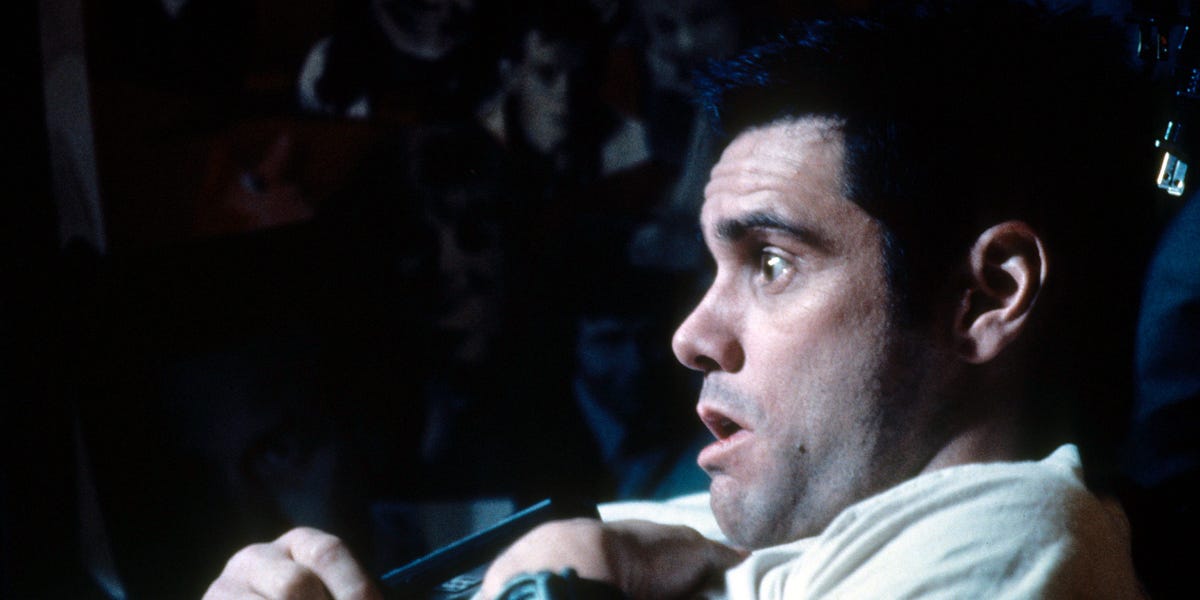Tech’s broken promises: Streaming is now just as expensive and confusing as cable. Ubers cost as much as taxis. And the cloud is no longer cheap::Some tech is getting pricier and looking a lot like the older services it was supposed to beat. From video streaming to ride-hailing and cloud computing.
You say “broken promises” I say “the plan all along” and “bait and switch”.
Yep. The business model has always been “Lure them in and stifle competition with a low initial cost. Then when we have the market we can jack up the price.” Enshitification at its best.
This is just capitalism at work. Capitalism = enshitification, exploitation, and destruction.
Literally working as intended. Not sure why it takes people so long to figure this out.
A healthy dose of western/capitalist propaganda since birth and until death helps a lot. So many people under the illusion that this is the natural progression of civilization, or the best.
When you’ve been exposed to nothing but capitalsm your whole life it’s incredibly hard to be convinced that anything else could even work. Just like people born into religious cults, it’s hard to break when it’s all you’ve known.
Growing up in the '70s and '80s in the US, I know that the “greatest country on earth” propaganda worked on me. It took me until my 30s before I kind of looked around and said,“What the fuck is going on here?”
So much propaganda some people think that if a government offers public services they are about to be sent to a gulag.
It’s just impossible to have a conversation about anything here, isn’t it?
Capitalism without any regulation*
Yeah but then the wealthy eventually start buying away regulation. The only thing that made capitalism get under any sort of control was fear of a worker’s revolution
The only thing that made capitalism get under any sort of control was fear of a worker’s revolution
Yep, and so they made capitalism global, exported all of the union jobs to countries where labor abuse is permitted or encouraged, and then created new categories of unorganized, exploitative jobs faster than labor could keep up with them.
Even well-regulated capitalism strives for this and somehow manages to achieve it. It is the nature of capitalism.
It is in the nature of power. Reducing this to a particular economic system is nearsighted.
Every social system with a power dynamic (i.e. a system with two or more people in it) is vulnerable to power abuse. Power blinds, blindness strips powerful of perspective, decisions made without good information drunk-walk towards ruin.
The only common thing is the fact that it’s the average Jane who suffers first and whose rage ends up counteracting the ruin.
It is in the nature of power. Reducing this to a particular economic system is nearsighted.
I will agree that it is the nature of power. But I will argue that few other economic systems actively facilitate (and actually reward) the concentration of power the way capitalism does. I’ll also point out you are basically resorting to a “whataboutism” argument.
I’ll also point out you are basically resorting to a “whataboutism” argument.
That explains… a lot. I apologize for wasting your time.
If its actually well regulated it wont be capitalism. Just like Europe has many kingdoms yet isnt full of actual monarchy.
All capitalism is, at its core, is the system of owning and investing capital for greater returns later. You can have that while regulating things–at least in theory.
An actual dictionary definition of capitalism:
an economic and political system in which a country’s trade and industry are controlled by private owners for profit.
Any definition of capitalism that doesn’t in some way mention private ownership of capital is simply wrong.
So your issue is that I didn’t use the word “private” in my write-up?
Also known as the Wal-Mart business model.
A lot of these things were proudly unprofitable, which is basically their way of getting around anti-trust violations. If they had a revenue stream to make the business profitable (outside of investors handing them more cash) then they’d be hit with anti-trust lawsuits for offering services at a loss in order to drive the competition out of business. But instead they just convince investors to hang on long enough to achieve the same goal, then raise their prices when they’ve got too much power to fail.
“Rent seeking” has a nice ring to it in this case, I think. The previous situation was fine, except for not being profitable enough for the right people.
Yeah it’s called capitalism
Capitalism is just one big con, and you have no alternative but to play along.
This has nothing to do with tech and EVERYTHING to do with FUCKING CAPITALISM.
What a dumb fucking post, tech didn’t promise us shit were still living in a capitalist nightmare where quarterly earnings are far and above the primary value, over any and all people.
What the fuck is this waaaa tech didn’t usher in an age of utopia!!! It’s almost like we have to solve other problems first. Fucks sake
Yarrrrr…shiver me timbers. Fly the Jolly Roger high matey, there be booty ta plunder!
Main reason I’m in the works of a nas myself.
After a long break from the seas, returning after close to 8 years, pirate life has really improved.
Synology + dockers + automation tools = the experience that streaming should have been
Pirating taxis?
Removed by mod
Yes. Yes I would.
A fake taxi like they say.
I think that’s just called robbery, but taxi pirate does have a nice ring to it.
Yo ho ho and a bottle of rum!
I love this response. 😀
Don’t blame tech, blame the bait-and-switch business model of loss leading products.
Uber never made money because they chose to undercut prices of all competitors and bleed them out.
I’d argue that newer streaming companies (those founded by studios, such as Disney +) did the same thing by roping in customers before jacking up prices.
It may be the “fault” of capitalism, but consider it was capitalism that birthed streaming in the first place. In the long term, the expectation would be a better solution will surface in reference to streaming… the same way streaming was a solution to cable. Thus is the business cycle.
Is this surprising? The prices were always going to adjust to the market. Any new cheap thing that undercuts the market will eventually become the market as it becomes mainstream, and prices will be increased to what the market will bear to maximize profits.
deleted by creator
Sure. But torrents are for files which is different from streaming. And Kodi + Trakt is still far beyond Netflix.
The costs to you with torrents are the relatively small risk you may get sued for a lot of money and/or the cost of covering up your activity with a VPN to make it harder to sue you.
People who were always going to pirate are still always going to pirate. But companies like Netflix know that people will pay for a convenient, legal service with features they like. But if they start charging too much or make their platform suck, people will be more likely to cancel them and pirate.
deleted by creator
Well that’s the difference, most people will pirate when it’s more convenient to do so. And as long as prices are so exorbitant.
I pirate hockey games, because watching hockey is ridiculously inconvenient and/or expensive.
I do not pirate music anymore, or video games because Apple Music is more convenient and not very expensive and steam has all the games I’d ever want to play, and has enough sales that it’s not that expensive either.
I don’t pirate movies and tv shows because Netflix and Disney really cover anything I want to watch and anything else I share a crave subscription, like for Game of Thrones
But I do pirate hockey games.
I use WebTorrent nowadays, since it allows you to stream torrents. But before that, I also used qBittorrent, great application.
Qbit also lets you stream torrents, you just have to ‘download in sequential order’.
Oh didn’t know that, thanks!
I think the problem comes in with all the copyright and monopolization bs companies like Verizon and apple pull to remove all possible competition and allow them to jack up their prices
This is surprising from a naive market based perspective. Think about how TVs and computers have gotten cheaper and better. The hope was that this wouldn’t just be the same product with new players. The idea (or the lie if you prefer) was that the new technologies would lead to efficiencies so we can all get more for less.
It just didn’t make any sense for something like Uber. It costs money to give someone a living wage and their app wasn’t going to change the fact that someone still had to drive the car. The whole idea made no sense, which is why they were racing to autonomous cars. That hasn’t panned out.
I actually think streaming is a much better value than cable, even at the same price. Shows are higher quality and more plentiful. Many high quality movies are included. You’re also not required to get every package. Skip Paramount if you don’t want it. I still think streaming easily beats cable.
Exclusive rights to content are the problem here. There is no competition if the consumer has no choice (except not watching at all).
There is a case here for legal separation between content production and distribution. Not just streaming services, it goes for any content, games, cinema, even patents.
Uber on the other hand - I have a problem with their employment rights, not paying people or calling them “contractors” instead of employees.
Otherwise it’s a great positive example of free market in practice. Someone had an idea for a new business model, tried it, it appeared to work for a couple of years, and now they will fail because it doesn’t have a long term perspective. It shook up existing monopolistic practices in the industry, and then tried to establish their own monopoly. And will fail because of that. It goes in circles.
The prices were always going to adjust to the market
The prices will always be inflated regardless. The free market is a myth at best, a delusion at worst.
No it’s not surprising, we ALL STILL live in the same fucking capitalist nightmare.
Anyone surprised is simply naïve and/or a literal child lol
Remember when we could only watch what had recently been on TV and cable companies were trying to lock people in to specific cable boxes that couldn’t skip ads and we paid $120 per month for ad supported content and cable companies would attach random fees and everyone had to buy hundreds of channels to only watch 4?
And we’d build movie and music collections of physical media we had to keep in our homes and cars and we’d listen to the same three albums for months and if we were lucky enough to get a TV series box set, it’d set us back many hundreds of dollars and we’d have to remember which disc we were on and navigate arcane and slow menus?
And when we had questions, we had to find the answers ourselves by reading long form content and just be satisfied that there were many questions we couldn’t answer at all because the information wasn’t available?
Or when we wanted cabs, we’d not know how much a ride would cost until after we got to our destinations and they smelled like rotten farts and were covered in boogers and our only goal was to not touch anything and look out the window because what’s a smartphone?
And when we wanted to go somewhere, we had to ask for directions and use atlases to figure out how to get to the general area of the destination, then drive in circles, accidentally drive past a turn 5 times because the street we were supposed to turn onto had two different names and we had been given the wrong one?
I was there and anyone who pines for the old days can just go there. We have cable and encyclopedias and taxis and atlases. Go nuts.
Take video streaming. In search of better profitability, Netflix, Disney, and other providers have been raising prices
Piracy and buying/ripping physical media is back on the table bois. Been running my own personal media server secured with a VPN to access it. Costs are the symmetric gigabit connection, a simple raspberry pi for WireGuard, and old computer for media server. Plus some technical knowledge.
Any physical media I have has been ripped to digital form (4K where possible).
A 3-mile Uber ride that cost $51.69
Yet another reason why we need to have more diverse options in transportation. Public transportation is dismal in the USA due to suburban sprawl and car centric society. Alternative forms of transportation such as bikes or even walking is not accessible to a large portion of people.
Took a bus the other day and the total cost for 24 hrs was exactly $2.50. Don’t have to worry about psychos on the road driving to and from their deadass suburban home and deadend job.
Cloud promises are being broken
Fuck the “cloud”. It’s just another persons/companies server. Switched off major cloud platforms long ago.
Have off site backups take place nightly. No middleman scanning my stuff. No more upselling. Besides ISP costs, everything else is static or one time setup.
Tech never promised anything. They cut the price for people to be dependent to them and then rise the price.
It’s just basic capitalism.
Right. This is how it works. The marketplace sustained a value for watching entertainment at home (cable tv). When pricing outstretched customer desire to use the product, the business changed to start selling the service connection in addition to advertising to create another revenue stream. It got so ubiquitous that people don’t even remember that OTA tv was the majority solution for decades and was completely funded by ads. Eventually, prices stabilize and the business can only make more money by acquiring a larger share of the market or innovating something new. They’ll always try to increase that price, but it is balanced by how many customers choose to give up the service.
When streaming platforms disrupted that business model, they were cheap because they had to convince the marketplace to change. As adoption got more prolific, pricing changes to recoup early losses… then to increase value to become more attractive to the customer and gain more market share… then to increase profits.
We are still at the point you can cancel the service and jump around on a monthly basis, but the days of 12 month contracts are right around the corner… and they’re coming fast.
It has honestly never been so reasonable to just buy the blue ray disks and just rip them to store locally. The other alternative is to pirate the media, but at least it’s still legal to rip your own media, and honestly for how much we’re all paying for streaming it’s not unreasonable to just buy the titles we repeat watch outright.
Of course, were probably not far from them phasing out DVD runs entirely, or for the DMCA to be amended to remove the fair use exception for personal use. I’m pessimistic enough to think they’ll outlaw VPNs in the US too, and then all we’ll have is SSD drops.
where I am currently living, you can’t even rip stuff for PERSONAL use, which I think is ridiculous. I understand making it illegal if you’re profiting off it, or selling it, etc. but if it’s only ever used personally by you, I don’t see why not?
If you see the law as an extension of collective democratic interests and compromise, then yea, it should absolutely be legal.
But if the law is an extension of the interest of capital, as it is in the US, then why should you be allowed to do that? Every ripped DVD is opportunity cost for streaming or renting services.
Edit: if IP holders got to litigate this is court, they’d argue that “most people” who rip DVDs only do that to illegally share them, and most “normal people” prefer the flexibility and choice in a streaming service. The same argument is now routinely used in defence against rent control and public housing: most people who rent want to be renters, otherwise they wouldn’t pay the HUGE FEE for the privilege over buying a house.
Completely blind to the coercion involved in making those choices the only reasonable options, and that it does NOT constitute consent
Depends on where you live.
In the Netherlands it is legal to “pirate” media, since they pay a small fee (2-5€) on every device that could play those media, and use this money to pay the artists.
That socialism thing sure does sound awful.
They will not outlaw VPNs. Every major company uses a form of VPN to allow workers to connect remotely. No chance this will happen.
They could still compel VPN providers to give them information about users and user activity, if something like the RESTRICT act passes in order to limit access to international networks/apps.
Not exactly a ban, but it would absolutely negate the intended purpose for most VPN users (myself included).
When I go to France, I’m blown away by the number of tv channels they get for free over the air. It’s incredible.
It really is crazy that you can have venture capitalists operate at a loss for a decade just to change the entire infrastructure of society to be dependent on them in the future. Really undermines any kind of microeconomic common sense that is supposedly the basis of capitalism.
Just goes to show that wealth distribution is so fucked if a small group of people can burn billions of dollars on essentially a bet. Just because they have enough bets placed that they know some will payoff.
On the flip side, piracy has never been easier.
Honestly, yes it has been. It’s not too bad, but it used to be easier.
I would argue it’s easier just in significantly different ways - the Arr stack of applications take more effort to learn and setup initially, but once you have it’s absolutely effortless.
the Arr stack of applications
The what now
Explain
P2P (eMule/Limewire/etc.)
DDL (Megaupload, Rapidshare, etc.)
Just these two were easier.
In addition, pirated physical media used to be an easy way for non techy people to acquire media in developing countries.
Used to be? As late as 2011 I saw entire businesses dedicated to selling pirated movies.
I mean, 2011 was 12 years ago.
True, but this was in kandahar, I expect not much as changed…Except perhaps the selection.
Literally everything was easy about it 5-10 years ago. Even 20yrs ago starting with Napster. Shit was the wild west you could pretty much do whatever you want. Apart from the various rogue virus laden crap. Torrent trackers got good about reporting bad ones though.
My usenet provider used to have EVERYTHING. Now they don’t.
It also used to have free indexers
Not sure how it’s easier I can’t get near a torrent site without getting dumb letters from ISP. "get a VPN… "
OK. Well that’s not easier than ever, is it lol.
Use Mullvad, $5/month prepaid and you can even mail them cash if you have no other way to pay. No subscription or other scammy stuff. Your entire login is a single auto-generated number, and if you use their app (Open source, 3rd party audited) you just punch it in and boom, VPN time.
I think from signup to using the service was under 5 minutes!
For the power users you can log in on their site and generate Wireguard keys, which you can use with Docker to wrap up all your piracy stuff inside a container that can only access the VPN connection for safety and convenience. But you don’t have to do that, you can just run the app and put everything through the tunnel when you’re downloading.
They don’t allow port forwarding
True but this was a reply to someone who wanted it easy, they’re not running a seedbox they’re just looking to leech and maybe seed back a reasonable ratio if the torrent is active. And that’s totally achievable without port forwarding.
I take it you’re in a country in which VPNs are stringently regulated or outright don’t exist?
The tricky part is making sure your VPN is set up correctly and verifying that your torrent client doesn’t try to fall back on using your unmasked IP if the VPN connection goes down.
I’ve gotten dumb angry letters since from ISPs since Napster.
But I’m hard pressed to remember a time when so much content was so readily available so quickly.
And a $4/mo Proton VPN is downright trivial when the cost of a good laptop has fallen from the $1000s to the low $100s.
We should have seen this coming. I remember the early 80s when cable was the new hotness, and it was cheap, with no ads unlike broadcast television. That was its major selling point.
Then over the next decade the ads crept in, and we were all paying for cable with ads, even though the whole point had been no ads. Then the price skyrocketed and the ads remained.
Steaming was always going to follow the same path. Cheap with no ads at first, then adding ads, then skyrocketing prices, then crazy prices with ads too.
They know as long as all of them raise their prices, where are we gonna go? They have exclusives. We can’t just take our money elsewhere.
The alternative is simple. The seven seas are calling out to you. :)
Or read a book, or do literally anything else.
Books would have ads.
Not if Anna has anything to say about it…
Aye matey.
Wait, there was a time when cable didn’t have ads???
Yeah, because you were paying for it. Where as broadcast was free over the air.
What’s surprising to me is that anyone didn’t see this coming. The ideal of online streaming being cheaper and better was very alive and well when Netflix was the only streaming service. However, I started to note that some content from specific copyright holders started getting removed from Netflix and from that single indicator, I saw this happening…
I could almost see them gearing up to launch their Netflix competition service which would be analogous to channel “packages” on cable. You get the Netflix package for x, y, and z shows, the $studioG package for shows a, b, and c, etc etc. Creating the exact problem that we’re trying to eliminate with going to streaming. From that moment, I committed myself to sail the seven seas and download all my own Linux ISOs. It seemed like everyone else couldn’t see what I saw, and nobody cared. Then it happened… HBO, Hulu, Prime video, Paramount+, Disney+, etc, all came out of the woodworks, and now this.
My argument is that the MPAA needs to learn the same lesson that the RIAA did after the Napster lawsuits. Some people who were “sued” by the RIAA actually fought back. Most couldn’t because they didn’t have the money to pay for a drawn out legal battle, so they settled, but a few brave souls fought back… The story is long but it’s clear to me that the RIAA learned a very important lesson: it’s not profitable to sue everyone who pirates their content; and if you look at the music industry now, there’s very little piracy, and almost everyone has a music subscription service, whether Spotify, Apple music, tidal, YouTube music, or something else. Anyone without a subscription generally suffers through ads, with very little difference between which service you use (at least, regarding what’s available), or how you use it… There’s still people pirating the music (far fewer than in the days of Napster), and still people buying physical media, but long term, they’re safe from going under from P2P sharing. The vast majority of consumers are paying for the content either through ads or subscription and all music is available on all services.
The MPAA is still hard headed about all of this. Disney is trying to fix the problem by buying everything up, so other studios are forced to have their work on D+, because the big D bought them… I’d argue that Disney is doing a better job at squashing video media piracy than the MPAA… The problem right now is that the various video streaming services are all run by the studios that publish the content on them. A truly third party streaming service (that is not also a competing studio) is needed, who can license content from everyone… Most won’t license their content to a third party service because it’s not as profitable compared to running their own service… So we’re stuck. If the MPAA stepped in and made such a service, and not-so-politely asked the various studios to license their content to it, then made it affordable, I would hang up my black hat and skull flag and never look back.
The chances of this happening are so small that I’ll just go ahead and order a new flag… My current one has been flying for so long it’s looking a bit sun-bleached.
I have zero hope or expectation of this happening, and bluntly, if it did, whether we admit it or not, I think most of us would hang up our hats and relent, because it’s far easier to simply pay a (reasonable) monthly fee than to do all the crap associated with getting it another way. They won’t, so yo-ho-ho.
It’s economics 101, prices will rise to what the market will bare… Unfortunately the market is irrational and has access to credit cards.
As long as current economic/cultural model exists, there is no escape from advertisements. Consumerism can’t thrive without advertisements and any technology that gets mass adopted is perfect venue for that.
Today, its only entertainment platforms which are infected with this bug, tomorrow it’ll be your car, fridge and anything which needs internet connection(almost every home appliances).
None of those things need Internet access. They are doing this so that you’ll own nothing. Cars are a good example here. Why in the world would they introduce heated seats that are subscription based? Because they don’t want to sell you or me a car anymore. They are looking forward to self driving autos, and intend to sell fleets to cities and corporations. You and I will rent the cars much like a cab, but now the manufacturer can still make money charging $1 to roll down the windows, $5 for the radio, $7 for A/C, etc…
Time to disrupt the disruptions.
But I can binge streaming services and then cancel without multiple hundred dollar fees. And I can use the same app for Uber no matter what city I’m in.
So… I get things aren’t paradise but let’s be clear they’re still largely covering a lot of folks needs.
For now.
Moreover, not to take sides with Google, Microsoft, Amazon, Dropbox, Box, etc, but storing files costs money to maintain (there needs to be redundancy, every once in a while drives need to be replaced, they need to be cooled, etc), so we’d like it to be cheap, but doing all these things cannot be free for the hosting company.
This is not to say they are jacking up prices, but that it cannot stay super cheap forever.
Still, these services have been very handy so far, though I’m looking to see if the plan I have is still convenient compared to the competition
Seems to me like it would be more sustainable if it was super cheap for a large common library so a large userbase would maintain a continuous subscription, supporting a large continuous revenue, rather than signing-up and quitting intermittently.
The media companies are ruining it for themselves by trying to squeeze more out of the users, which leads them not to stick with any of them.
Seems to me like it would be more sustainable if it was super cheap for a large common library so a large userbase would maintain a continuous subscription, supporting a large continuous revenue, rather than signing-up and quitting intermittently.
Excuse me, but how would a tiny percentage of people profit off of this?! What is even the point if there are no shareholders to demand record profits year after year? /s
I still believe there’s a huge markup though. Look at premium Usenet providers - they store something like 1200 days of the posts (minus DMCA takedowns) which I think run something like hundreds of petabytes of data. Yet they can provide the service, including transfer, for what has to be a niche market at rates around $10 a month. Presumably there’s no “magic” or subsidies in what they’re doing. Yet what they’re doing is essentially what a big streaming service is doing.
Now you might say - well, yea, $10 a month - right around streaming prices. Sure, but you figure in the larger scale to spread the costs over. For Box etc, they’re not even having the content costs that a Netflix would have (which I’ll admit is a lot, and might well make up for the difference between just storage and transfer of Usenet) which makes them comparable in some sense.
Even if you say that well, Usenet gets multiple companies cooperating in their competition and storing the same data so they get some redundancy for “free”, compare to backup providers like Backblaze at $7 a month for unlimited storage (unless you’re on Linux, then f**k you, so I don’t use them, but still). Or Jottacloud that runs around $100 a year for 5TB soft cap 10TB hard cap.
I still think there’s a mix of a lot of markup, and people not actually looking much into competition - I know people who don’t cross compare.
We talk about being able to stop paying things as a service in it’s own right lol.
“Needs” lol
The thing about unregulated capitalism is it will always fuck over society in favour of sociopaths. Unregulated capitalism rewards sociopaths because it focusses on profits above all else – shareholders get stupidly rich only if they don’t care about the damage done to workers and the public, sociopaths who don’t care about such damage can promise the highest profits, and that’s rewarded by a hyper-focus on the bottom line.
Unregulated capitalism rewards ruthless cost-cutting, treating people like robotic assets, slash-and-burn corporate policies, and a culture of near-slavery.
Adding new tech only makes inhumane policies easier to implement. It’s why people like Musk have more money than they could spend in a thousand lifetimes. When the goal is to maximise profits at all costs, of course the consumer will get fucked. That’s rather the point.
E: in short, prices will continue to increase as these people try to find the ceiling. Ps: there is no real ceiling.
Although prices are rising, the same work conditions remain for the workers, or get even worse. Take Uber for example. But the company will blame “regulations” from the government as the cause of rinsing prices, not its own greed.
Oh, I don’t know about that. I think Musk as a unique ability to spend money.
This is all by design. Once they have you/us/them captured again, we’re going to take another trip around the “raise prices and squeeze services until it’s unsustainable, because shareholder and CEO profit”. It has all happened before and it will all happen again.
The cloud is just someone else’s computer. The uber is just someone else’s car. Streaming is just someone else’s media library. They have you right where they want you, dependent on them.
I’m fifteen and this is deep.
Uber was never a tech proposition, it was a predatory disruptor.
The streaming fiasco is sad but inevitable as greed does what greed does.
Cloud was never primarily about price, the big cost save initially was to get rid of purchased or rented iron and locations but the main reason of the Big Switch was the scaleability and opportunities for quick deployment of new technologies and methodologies.
Uber may be predatory but in a lot of parts of the world, the taxi “system” is also a predatory racket. For both the drivers and the clients.
The way taxi co’s behaved, it’s not to wonder that Uber took off. Acting like a modern era guild system, intentionally taking long routes to drive up the price, etc. There’s no way that kind of behavior can succeed in an era where everyone has military-level accurate GPS mapping units in their pocket and greater impatience than ever with entrenched bullshit.
Cloud computing is very much like the timeshare computing of old. It’s the dream of every mainframe owner to keep the platters spinning. Ie, keep extracting computational rents for owning the big numbers boxes.

























